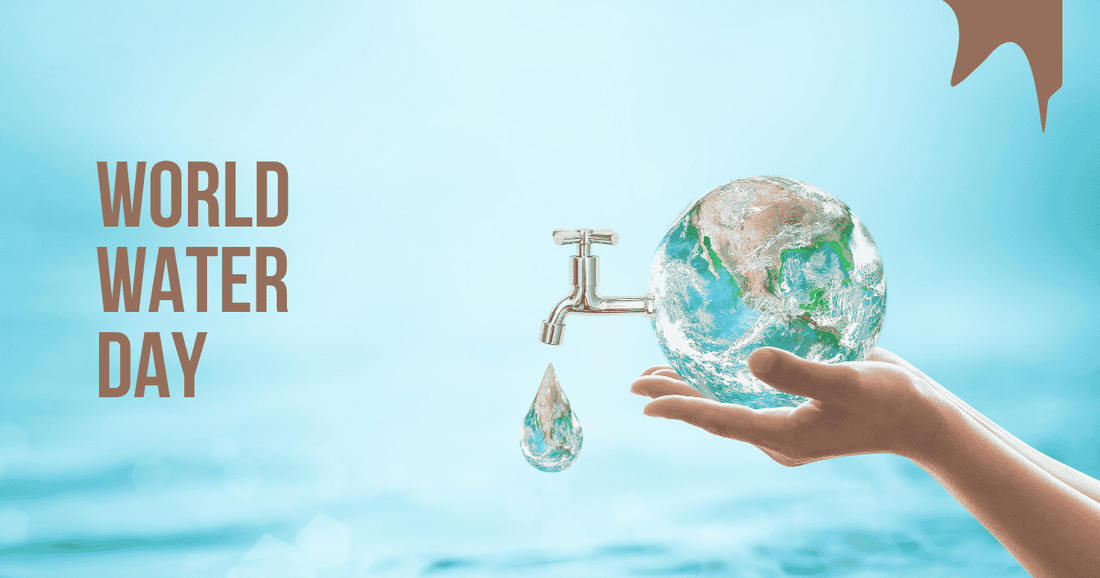Celebrating World Water Day: Essential Hydration for Growing Kids
Share

Today marks World Water Day, an annual observance that highlights the importance of fresh water and advocates for sustainable management of this precious resource. As parents, we understand that proper hydration is fundamental to our children's health and development. At 7N Panacea Biotec, we're committed to supporting families in nurturing healthy kids, and today we're focusing on water's vital role in family wellness.
Why Water Matters for Children's Development
Water is essential for every bodily function, but it's particularly crucial during the early years of life when children are growing rapidly. Proper hydration supports:
- Cognitive function and concentration
- Efficient digestion and nutrient absorption
- Temperature regulation
- Healthy skin and tissues
- Waste elimination and detoxification
Children are more susceptible to dehydration than adults because of their higher water content and faster metabolic rates. They also may not recognize thirst signals as readily, making it our responsibility as parents to ensure they're getting enough fluids throughout the day.
Hydration Guidelines for Different Ages
Infants (0-12 months)
Breastmilk or formula provides all the hydration a baby needs in the first six months. As solid foods are introduced, small amounts of water can be offered in a sippy cup, but milk remains the primary source of hydration.
Toddlers (1-3 years)
At this stage, children should be drinking about 4 cups (32 ounces) of fluid daily, including water and milk. Colorful cups with favorite characters can encourage regular sipping.
Preschoolers and School-Age Children (4-8 years)
Children in this age range need approximately 5 cups (40 ounces) of water daily. Establishing regular water breaks and keeping water accessible helps build healthy hydration habits.
Creative Ways to Boost Water Intake
Getting children to drink enough water can sometimes be challenging. Try these family-friendly approaches:
- Infuse with natural flavors: Add sliced fruits, vegetables, or herbs to water for a subtle taste boost without added sugars.
- Make it a game: Create a simple reward system for meeting water goals, or use marked water bottles to track progress throughout the day.
- Lead by example: Children learn by watching us. When they see parents regularly drinking water, they're more likely to adopt the habit.
- Serve water-rich foods: Watermelon, cucumbers, oranges, and strawberries all have high water content and can contribute to overall hydration.
Sustainable Water Practices for Families
World Water Day also reminds us of our responsibility to protect this vital resource. Simple family practices can make a difference:
- Teaching children to turn off taps when brushing teeth
- Using water-efficient bath routines for little ones
- Collecting and reusing water from rinsing fruits and vegetables to water plants
- Discussing water conservation in age-appropriate ways
Supporting Your Family's Hydration Journey
At 7N Panacea Biotec, we understand that everything from nutrition to diapering affects your child's comfort and health. Proper hydration works hand-in-hand with quality nutrition products to support optimal development. As you celebrate World Water Day with your family, remember that establishing healthy hydration habits early helps set children up for a lifetime of wellness. Every sip counts toward building stronger, healthier kids! What steps are you taking to ensure your family stays properly hydrated?
References
- World Health Organization (WHO). (2023). "Guidelines on adequate hydration in children and adolescents." Retrieved from www.who.int
- American Academy of Pediatrics. (2024). "Healthy hydration for children." Pediatrics, 143(5), e20190642.
- United Nations. (2025). "World Water Day 2025: Water for All." Retrieved from www.worldwaterday.org
- Centers for Disease Control and Prevention. (2024). "Get the facts: Drinking water and intake." Retrieved from www.cdc.gov/nutrition/data-statistics
- Journal of Nutrition Education and Behavior. (2023). "Strategies to improve water consumption in young children: A review." 55(2), 178-189.
- Popkin, B.M., D'Anci, K.E., & Rosenberg, I.H. (2022). "Water, hydration, and health." Nutrition Reviews, 68(8), 439-458.
- UNESCO & UN-Water. (2024). "The United Nations World Water Development Report 2024: Valuing Water." Retrieved from www.unesco.org
- Environmental Protection Agency. (2024). "Water conservation at home: A guide for families." Retrieved from www.epa.gov